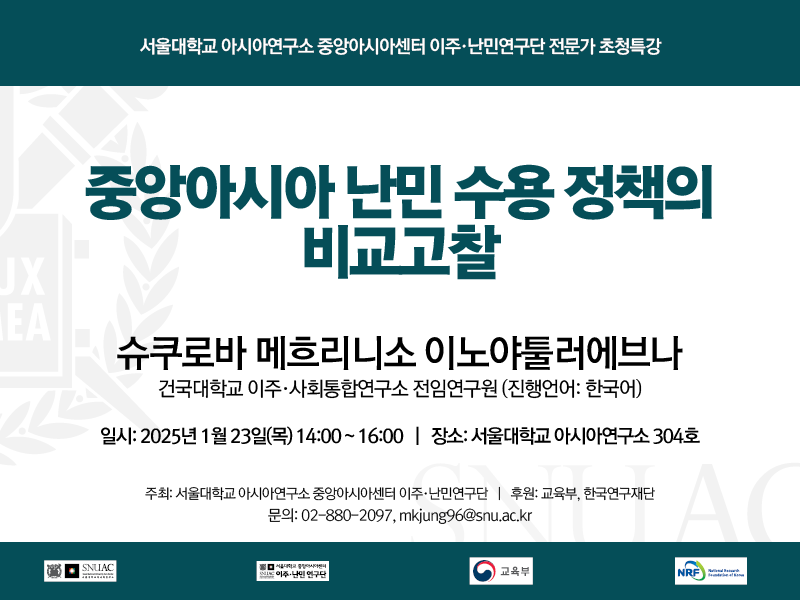Refugee Acceptance Policies of Central Asian Countries: A Comparative Overview

- Date: January 23rd, Thursday, 2025, 14:00 – 16:00
- Location: Room 304, SNUAC (Bldg. 101)
Presenter: Shukurova Mekhriniso Inoyatulloevna (Research Fellow, Institute for Migration & Social Integration, Konkuk University)
Central Asia, composed of the former Soviet republics of Kazakhstan, Kyrgyzstan, Tajikistan, Turkmenistan, and Uzbekistan, has experienced significant refugee inflows and other forms of involuntary migration since gaining independence. The collapse of the Soviet Union, along with ensuing civil wars and economic difficulties, forced many people to leave their homes. In recent years, the region has witnessed not only the internal displacement of its own citizens due to natural disasters and conflicts but also the arrival of refugees from Afghanistan and other countries.
With a population exceeding 80 million, Central Asian countries face increasing importance in understanding the diverse approaches and challenges involved in formulating refugee policies. The region has transformed into both a key destination and a transit hub for individuals seeking refuge from conflicts, persecution, and various threats. The complexity of the refugee situation in Central Asia necessitates a nuanced understanding of its unique context and the development of tailored policy responses.
This lecture will examine the refugee policies of these countries, focusing on their approaches to refugee reception and support, the legal frameworks underpinning these policies, and the similarities and differences in their implementation. Additionally, it aims to identify areas in need of improvement and contribute to a deeper understanding of refugee management in the region.
